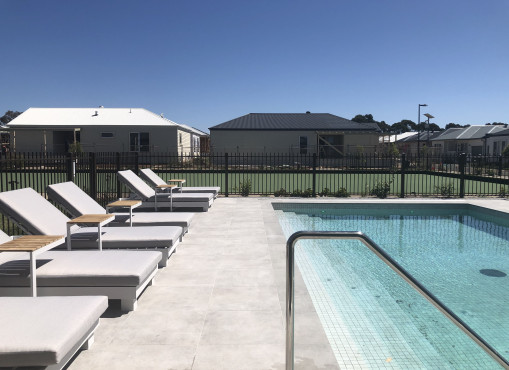- Home
- /
- All blog articles
- /
- Why your 50s and 60s might be the perfect time to study

Why your 50s and 60s might be the perfect time to study
Studying is often viewed as the domain of the young, but there are plenty of good reasons to consider signing up for a course later in life. While most of us are traditionally driven to study as a path to establishing a career, the rewards of undertaking learning in your 50s and 60s extend well beyond career advancement or academic achievement.
Here are some reasons why you should get back into the books later in life...
Regular social interaction
Picking up studies again can provide you with enormous social benefits. Most courses involve tutors and students, providing regular opportunities to interact with others with similar interests. Even online courses have a community-driven feel, as most include access to student forums or social media groups.
Reskilling and upskilling
Studying provides the opportunity to reskill or upskill, either in your existing field, or for work in a new area. This is particularly important as the impact of the digital age becomes more notable across all professions and workplaces. Upskilling can help you keep pace with technological advancements in your area of work or interest.
Alternatively, you might be interested in applying for a digital role for the first time, and obtaining these skills through a course can be a great way to do so.
Many of us in our 50s and 60s are not yet ready to retire, but would like to move away from full-time employment. However, simply reducing the hours within your current role is not always an option. The move to part-time work may be the perfect time to retrain for a role in an area or industry that you have always wanted to investigate.
Healthy mind, healthy body
Just as a healthy body is important for a positive mind, there are many benefits gained from keeping your brain active. Much like the muscles of the body, the brain needs to be exercised to keep it functioning at its best. According to Better Health Victoria, “The brain is like a muscle” and should be kept active and alert as you age. Developing a new personal interest that mentally challenges you can have a significant impact on your mental health and brain functionality overall.
Where to study
In Australia, education institutions offer a wide selection of both short and long courses across a number of disciplines, at varying costs. The University of the Third Age, for example, provides courses specifically targeted at retired or semi-retired students over the age of over 55. Online universities and community colleges are also worth investigating, and TAFE might be the best option for reskilling for part-time work. There are also options like Open Universities, for those are interested in picking up single units in a specific field.
Flexible study options
Thankfully, these days, it’s possible to participate in many courses from the comfort of your own home, thanks to online learning. The main advantage of online courses is the flexibility on offer. Some courses involve a weekly or monthly module release, while others make all modules available immediately for a particular period, such as 12 months.
There are also courses available in a more traditional classroom environment for those who prefer face-to-face interaction with teachers and fellow students. And signing up for a course doesn’t mean a commitment to years of study—short courses may run over a few weeks or months.
Whatever your preferred length of course, mode of learning, or area of interest, it is likely that you will be able to find a course of study to suit your needs. And just remember, it’s never too late to start learning.
If you’d like to find out more about Lifestyle Communities®, call our friendly team on 1300 50 55 60.


